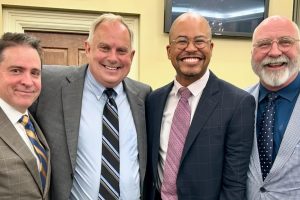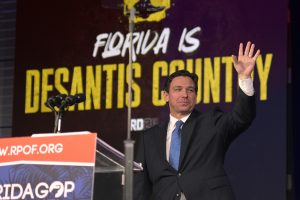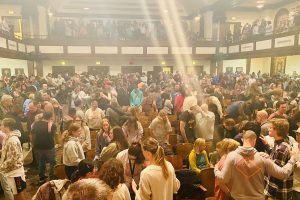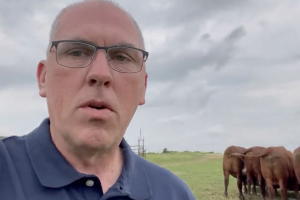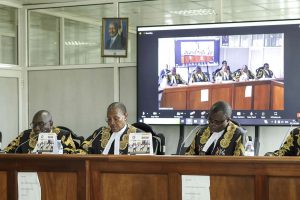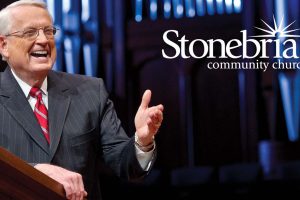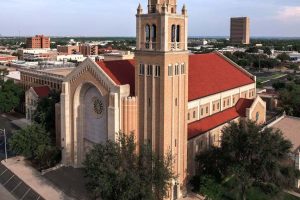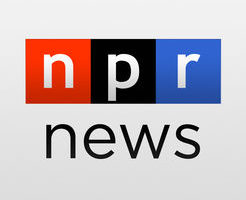On the heels of the recent whistleblower accusations against Facebook, the social media company has decided to change its primary organizational name and logo.
Founder/CEO Mark Zuckerberg noted the irony of the name-change timing during the launch of Meta, Facebook’s new parent company brand. “With all the scrutiny and public debate, some of you might be wondering why we’re doing this right now,” he acknowledged. “The answer is that I believe that we’re put on this earth to create. I believe that technology can make our lives better. We live for what we’re building, and while we make mistakes, we keep learning and building and moving forward.”
Late-night comedians have had a field day with the name change. Jimmy Fallon joked, “This feels like when there’s an E. Coli outbreak at a pizza place, and they just change the name from Sal & Tony’s to Tony & Sal’s.” Stephen Colbert added: “So, we’ve reached the part of the movie where the corporation creates their own virtual world. What do you say we skip the whole robot uprising to harvest our organs and just jump straight into the Thunderdome?”
Allison Morrow wrote for CNN: “No amount of corporate re-branding should let Zuck or anyone else off the hook for the real, tangible harms their product has manifested and continues to propagate without consequence.”
But whatever one feels about Zuckerberg, Facebook or the role social media has played in our lives over the past decade, the vision Zuckerberg laid out for Meta goes far beyond a simple face-saving rebrand. His vision ultimately is about controlling evolution itself.
The evolution of connection
In his introductory address, Zuckerberg explained: “Our mission remains the same. It’s still about bringing people together. … We are still the company that designs technology around people,” adding the most important experience of all is “connecting with people.”
But while the mission and the company remain the same, the way these connections happen is evolving.
The new Meta website opens with the statement: “Connection is evolving and so are we. The metaverse is the next evolution of social connection. Our company’s vision is to help bring the metaverse to life, so we are changing our name to reflect our commitment to this future.”
Whatever the metaverse might be or become, Meta’s repetition of the word “evolving” and “evolution” should be noted. On its community page, Meta says it is about “coming together to connect and create change.” … “People are using Meta to connect and strengthen their communities.” … “We change the game when we find each other.” And people connecting “lift up their communities.”
Whatever the metaverse might be or become, Meta’s repetition of the word “evolving” and “evolution” should be noted.
These statements are not simply platitudes meant to target a younger, socially conscious audience. They tap into the story of the cosmos as an evolution of transcending wholeness.
The evolution of the cosmos
In the history of cosmic evolution, particles began to come together and connect. In their convergence, they created change by including and transcending each individual particle to create a greater whole called an atom. Then atoms repeated this process of connection with one another, which strengthened their community and changed again to transcend and to create a greater whole called a molecule.
This is the story of how our universe evolved to create stars, planets and galaxies. This is the story we carried within our bodies as we evolved to include and transcend into the complex relational network of mind and body we are today. This is exactly the story Meta is telling us it taps into, helping us come together to connect, strengthen our communities, and then lift up and transcend our communities together to create change in human consciousness.
The evolution of consciousness
Each stage in the evolution of human consciousness has been triggered by technology. As the first primates began making tools, humans evolved using technology to explore and expand our worlds. From about 64,000 B.C. to 800 B.C., our ancestors primarily lived as ritualistic tribes whose consciousness evolved toward a mythical relationship to the cosmos.
During the first millennium B.C., “human consciousness shifted to a new level due to a complexity of factors including technology, socialization, urbanization, politicization and economics, reflecting a new sense of self in relation to the cosmos,” notes Ilia Delio, a Catholic theologian with doctoral degrees in both theology and science.
During this time, the world’s major religions began to take form and people began to emerge from their tribes with a new sense of autonomy and individuality. Hierarchies also developed, which led to 3,000 years of violent, male-dominated power dynamics.
As individuals pursued rationality, they began to idealize a future of perfection that reminded them of their mythic past.
As individuals pursued rationality, they began to idealize a future of perfection that reminded them of their mythic past. Ernst Benz, a 20th century Eastern Orthodox historian, said, “The founders of modern technology felt that justification of the most far-reaching aims of their technological efforts could be found in the destiny of man as image of God and his vocation as a fellow worker of God, to cooperate with God in the establishment of the kingdom and to share God’s power over nature.” Zuckerberg seems to echo Benz as he casts his co-creating vision, in which people have been “put on this earth to create.”
However, as Christianity dealt with the insecurities of realizing the cosmos wasn’t centered on Earth, many Christians began to disconnect from science and technology, choosing instead to deny science and to create other-worldly visions of ultimate hope.
But in the everyday world, technology began to replace religion. “Now, ancient religious myths are replaced by techno myths and techno rituals — the myth of super-intelligence, the myth of betterment, the myth of longevity, and the rituals of purchasing the technological means of enacting these myths,” Delio observed.
The Jesuit priest and scientist Teilhard de Chardin recognized the invention of the computer would lead to a new evolution of consciousness toward a global, collective networked mind.
Teilhard recognized the evolving consciousness decades before social media developed. Today, scholars such as Delio believe a new type of person is evolving within an unprecedented grid of networked consciousness. In Re-Enchanting the Earth: Why AI Needs Religion, she writes, “AI arose as nature’s cry for connectedness and wholeness, an effort to transcend our crippled individualism.”
We stand at the precipice of an emerging consciousness unlike anything seen in human history.
The evolution of choice
As we evolve, we must choose how the virtual world will integrate with the real world. Zuckerberg explained: “You’re going to be able to bring things from the physical world into the metaverse. Almost any type of media that can be represented digitally — photos, videos, art, music, movies, books, games — you name it. Lots of things that are physical today, like screens, will just be able to be holograms in the future.”
Our choices will extend even to the people we allow into our lives. “You’ll get to decide when you want to be with other people, when you want to block someone from appearing in your space, or when you want to take a break and teleport to a private bubble to be alone,” he said.
The more we become integrated with artificial intelligence, the faster our evolution will develop. And we will have to choose the direction of our evolution.
The more we become integrated with artificial intelligence, the faster our evolution will develop. And we will have to choose the direction of our evolution. Transhumanism arose in the 1950s as a vision to evolve the homo sapien into a techno sapien. By utilizing artificial intelligence, the transhumanist envisions a future where the human mind can be extracted from the body and exist forever in a virtual metaverse. However, while this vision may seem attractive to some, it becomes completely cut off from the natural world.
In contrast, Teilhard de Chardin envisioned ultrahumanism as a new evolution of humanity, in which people embody the global, complex, computer networked mind and think in terms of the collective unity while remaining embodied in the world. Delio says the human body will extend “to the whole electronically connected planet” and the ego will “embrace the All — a oneness with all life in the cosmos.”
As the individual ego expands to include the All, hierarchies will fall.
The evolution of control
In our previous stages of human consciousness, hierarchies based on gender, race, age, wealth and sexual orientation dominated the planet. In Zuckerberg’s metaverse, all of these hierarchies, with their discriminating ethics, will begin to disappear.
The transition to a globalized, posthuman consciousness like the metaverse will utilize blockchain so that the control goes from a centralized, hierarchical power dynamic to a more widely spread access across traditional boundaries.
We’re already beginning to see the playing field leveled through cryptocurrency, as African crypto-artists are able to build generational wealth and maintain control of their art in ways unavailable to them in our existing traditional hierarchies.
The evolution of Christianity
With all the talk about virtual reality and augmented reality, many people are concerned we will lose touch with reality, and with good reason. But many Christians have not accepted our current reality to begin with, because we still are stuck in the hierarchies of the past. Many of us are too busy pretending we live in a young, fallen, static, hierarchical universe rather than an ancient, converging, becoming universe. “Evolution is speeding up, and religion is stuck in (an earlier) consciousness,” Delio observes.
If church communities decline to engage the next stage in human evolution, they will be left behind.
If church communities decline to engage the next stage in human evolution, they will be left behind. However, if they participate in the convergence of an emerging, globalized person, many of their power dynamics will fall. How will a complementarian church determine only men are in charge in the metaverse, when people’s physical gender may not even be revealed? How would people tithe, when many of their assets are holograms? How would pastors hold people accountable to their expectations, when people can just block the church and join a new one with the swipe of a hand?
A centralized, hierarchical Christian institution will be incompatible with a decentralized, converging consciousness. However, Christianity could evolve to enhance the next stage of evolution if Christians are willing to adapt theology that already exists into this next phase.
Through the incarnation of Jesus, Christianity teaches God becomes embodied. So, biological roots possess divine value. Through the passion of Jesus, Christianity teaches suffering must be faced and entered into. Zuckerberg’s vision suppresses suffering by allowing people to mask surroundings with “an incredibly inspiring view of whatever you find most beautiful,” and to simply block out of the universe anyone who is bothersome. And Christianity teaches the future is about the uniting of all things, the making of all things new. So, with Christianity’s emphasis on incarnation, suffering, converging unity and renewal, it possesses the potential to participate in and enhance the next stage of human consciousness.
With Christianity’s emphasis on incarnation, suffering, converging unity and renewal, it possesses the potential to participate in and enhance the next stage of human consciousness.
Christianity’s liberation theologies can recognize and dismantle hierarchies. Its many centuries of mystics can walk with us toward converging unity with the All. If we can get over our fear of empathy, we can enter into these new worlds to connect with people we would never meet otherwise, hear their stories and converge with them in empathy.
If Christian leaders can be bold enough to embrace our reality of a converging, evolving humanity and forsake all power dynamics of superiority and hierarchy, then Christian communities can play a vital role in our future.
As Ilia Delio says: “Technology and religion must find each other for the good of the whole earth. To do this, institutional religion will have to let go of everything that prevents engagement in the dynamic flow of evolution, and technocrats must rethink their dystopia, disembodied ideals in view of whole-earth posthuman life.”
Rick Pidcock is a freelance writer based in South Carolina. He is a former Clemons Fellow with BNG and recently completed a master of arts degree in worship from Northern Seminary. He is a stay-at-home father of five children and produces music under the artist name Provoke Wonder. Follow his blog at www.rickpidcock.com
Related articles
What the Big Bang and wholeness have taught me about Facebook / Analysis by Rick Pidcock
When a Facebook ‘friend’ told me I don’t understand the power of God / Opinion by Terry Austin
Facebook is the new voice of temptation whispering to the church in the digital wilderness / Analysis by Todd Thomason






















